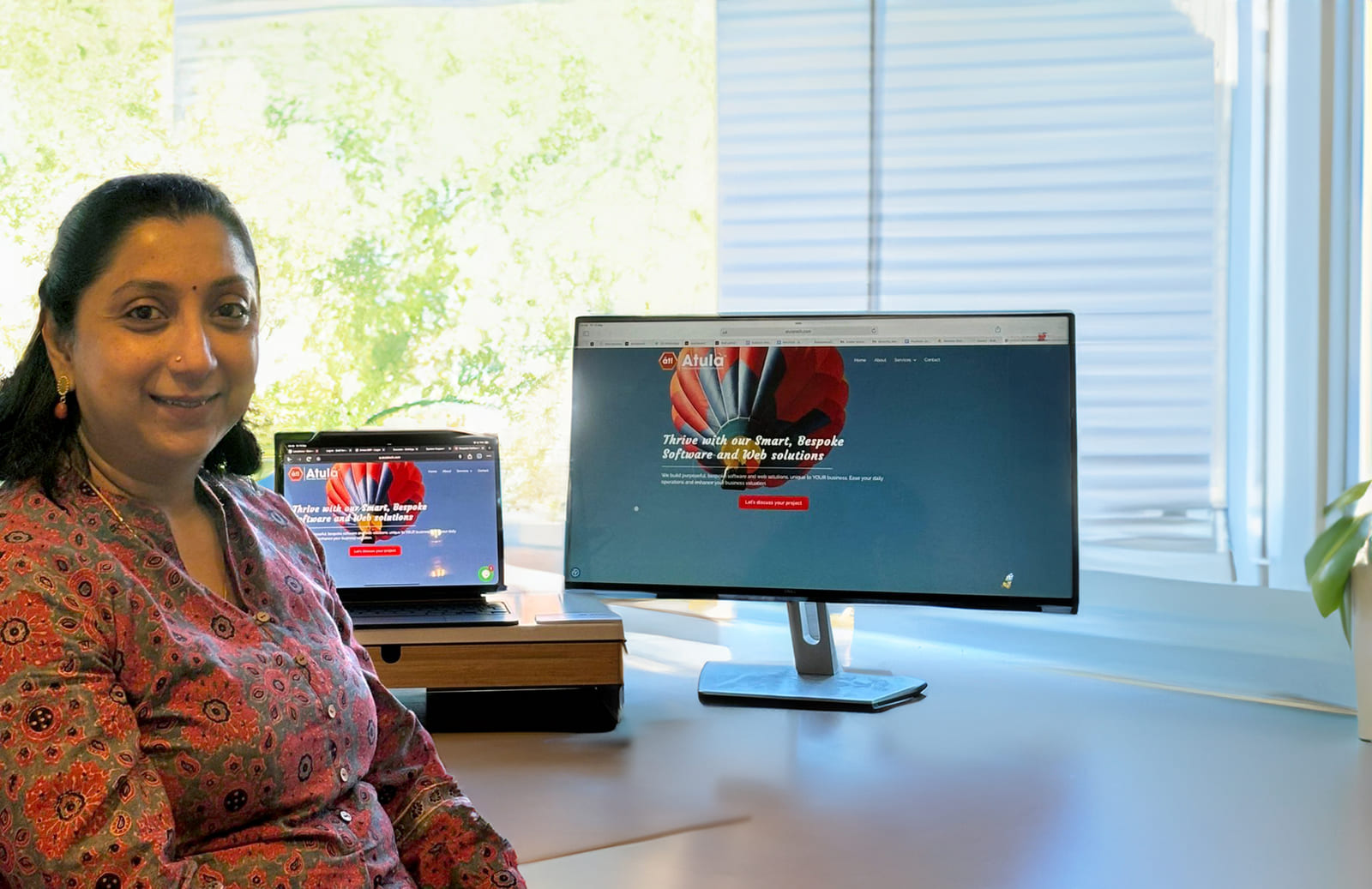Here at Atula Technologies, we are celebrating our fourth anniversary.
On behalf of our Managing Director and Co-Founder, Soumya Dinesh, we want to express our deepest gratitude to our incredible team, valued clients and friends for your unwavering
support. We truly appreciate everything you’ve done for us, and it’s hard to believe that four
incredible years have passed since we first launched. Thank you for being part of this journey!
We’ve achieved a lot since we launched, growing our global team of experts and working
alongside some industry game-changers. We’ve also been fortunate enough to be recognised
for our work, being awarded “runner-up” for the Digital Innovation Awards in 2023 by Bucks
Business First.
As we celebrate another year of growth and milestones, we’re excited about what the future
holds and look forward to continuing this incredible journey. Here’s to many more years of
collaboration and success!

